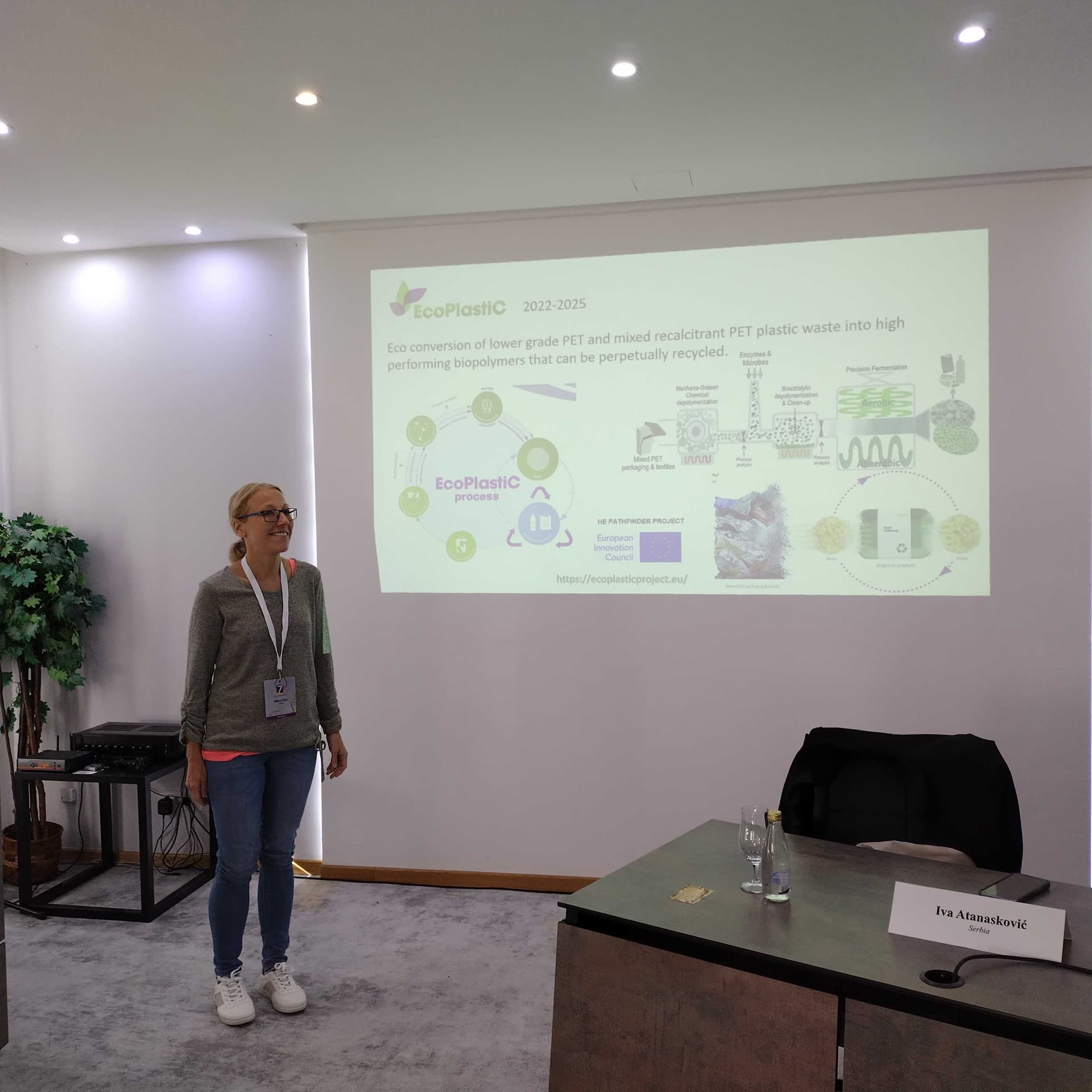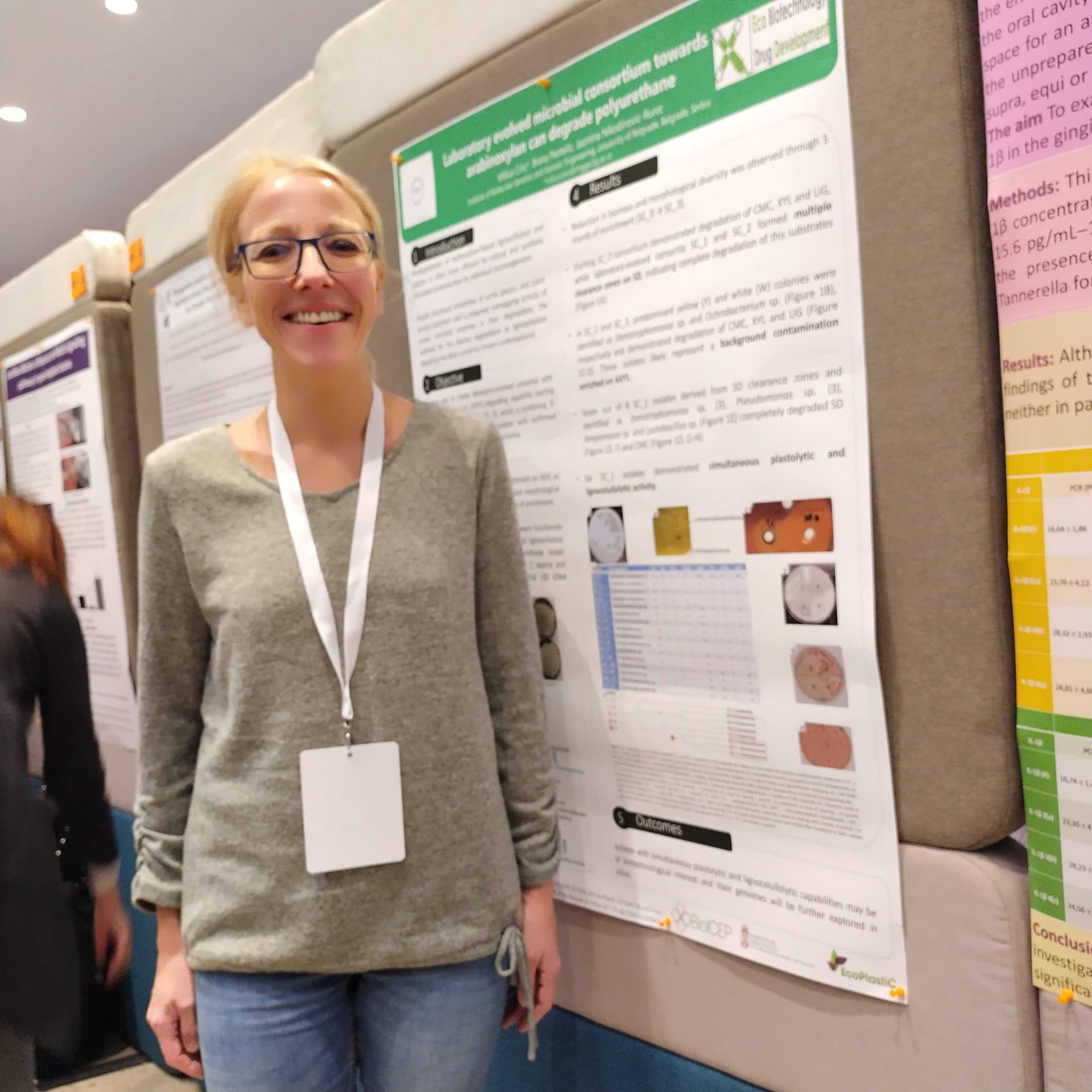7th Congress of the Serbian Genetic Society

The 7th Congress of the Serbian Genetic Society was organized at Zlatibor mountain, Serbia from 2-5 October 2024. This was an international conference covering a wide range of topics: (1) Population genetics and genomics, (2) Evolutionary and conservation genetics, (3) Microbial genetics, (4) Medical genetics, (5) Challenges of genotoxicology in the 21st century, (6) New breeding technologies and perspectives, (7) Bioinformatics and big data analysis. It gathered over 250 participants and included 12 plenary lectures, 33 invited lectures, 44 short oral presentations, 128 posters, 13 sponsor presentations and it also had a workshop, a mini-symposium and 2 round tables. The full Book of Abstracts is available HERE.
At the Congress, 12 plenary lectures were presented:
- “Genomics technologies create the foundation for understanding who we are, how we function and what we drink!” by Dr Miodrag Grbic (University of Western Ontario, Canada)
- “Epigenetic mechanisms involved in vascular degeneration induced by chronic hyperglycaemia: focus on in vitro cellular models” by Dr Nadia Di Pietrantonio (University “G. d’Annunzio”, Italy)
- “Transposable elements drive genetic and epigenetic novelty relevant for adaptive evolution across species” by Dr Josefa Gonzalez (University Pompeu Fabra, Spain)
- “Alkaline comet and micronucleus cytome assay – the use of the methods and their perspectives trough the results of the hCOMET, HUMNap, EDIAQI and BioMolTox projects” by Dr Mirta Milic (Institute for Medical Research and Occupational Health, Croatia)
- “Exploring plant’s amazing capacity to thrive under stress to protect our genomes” by Dr Rui Oliveira (University of Minho, Portugal)
- “Future of genetics in medicine” by Dr Borut Peterlin (Clinical Institute of Genomic Medicine, Slovenia)
- “Use of phenomic and genetic data in buckwheat breeding – ECOBREED example” by Dr Vladimir Meglic (Agricultural Institute of Slovenia, Slovenia)
- “Approaches and achievements in grapevine breeding” by Dr Dragan Nikolic (University of Belgrade, Serbia)
- “Isolation of BaMMV/BaYMV barley resistance genes allows the gene-editing based disease management and redefinition of the gene origin” by Dr Dragan Perović (Federal Research Institute for Cultivated Plants, Germany)
- “Genetics of early pregnancy losses” by Dr Dijana Plaseska-Karanfilska (Research Centre for Genetic Engineering and Biotechnology “Georgi D. Efremov”, North Macedonia)
- “New insights into uniparental disomy” by Dr Thomas Liehr (Jena University Hospital, Friedrich Schiller University, Germany)
- “rRNA operon multiplicity as a bacterial genome stability insurance policy” by Dr Ivan Matic (Institut Cochin, France)
Within TOPIC 3 – Microbial genetics, 1 invited lecture and 1 poster presented results relevant for the EcoPlastiC project:
- Invited lecture “Environmental microorganisms and their populations as biotechnological solution to plastic pollution” by Milica Ciric from the Institute of Molecular Genetics and Genetic Engineering (IMGGE), Serbia.
- A poster “Laboratory evolved microbial consortium towards arabinoxylan can degrade polyurethane” by Milica Ciric (IMGGE), Brana Pantelic (IMGGE) and Jasmina Nikodinovic-Runic (IMGGE).

Photo of the presenting author Milica Ciric during the invited lecture “Environmental microorganisms and their populations as biotechnological solution to plastic pollution”

Photo of the presenting author Milica Ciric with the poster “Laboratory evolved microbial consortium towards arabinoxylan can degrade polyurethane”